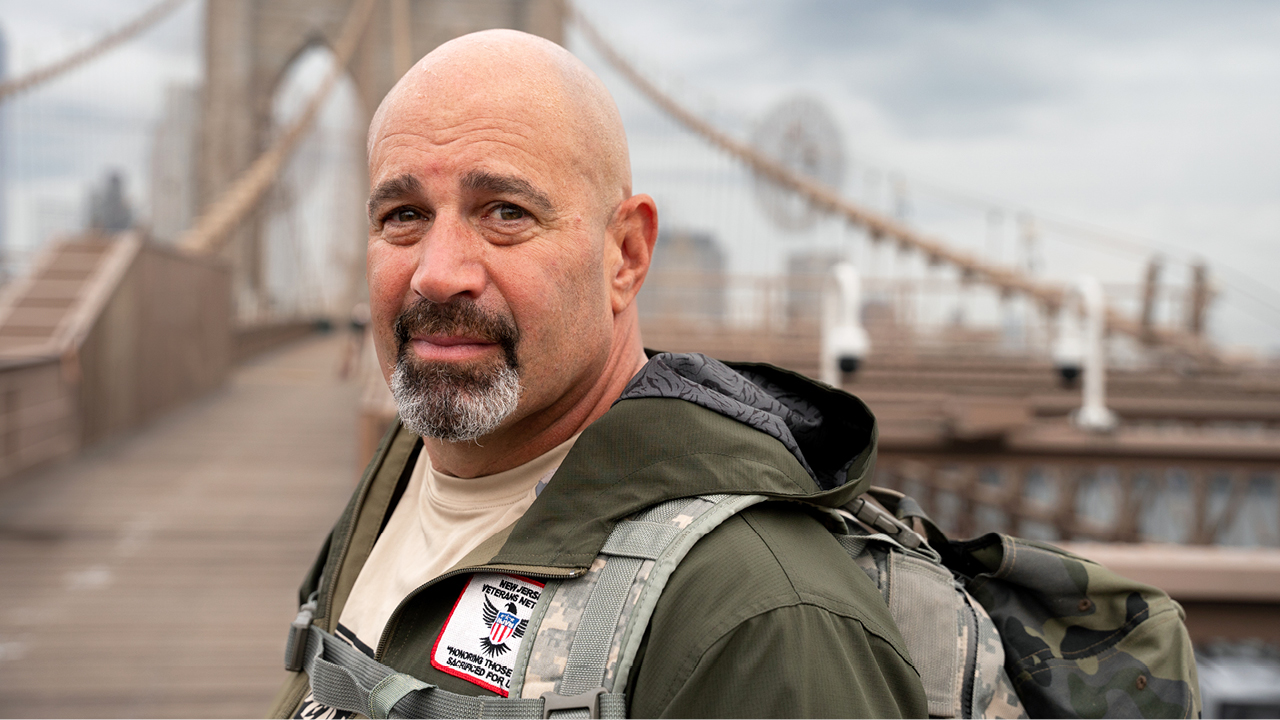To Help Other Veterans, He Also Needed To Help Himself
2-minute read
To Help Other Veterans, He Also Needed To Help Himself
2-minute read
Michael, a U.S. Marine Corps Veteran, found a new passion after service in helping other Veterans — a passion that eventually turned into a full-time pursuit. He soon realized that to help other Veterans most effectively, he also needed to address his own mental health.
“How can I tell them to get help if I’m not going to get help for my problems?” Michael says. “So I decided to start getting help, and it was probably one of the best things I’ve ever done in my life — to really understand why I act the way I do and get some help for it.”

This Marine Veteran Manages Anger With Distance Running and Coping Techniques
Michael joined the Marine Corps in 1989 and served in Iraq during Operation Desert Storm as part of the 6th Motor Transport Battalion, dubbed the “Baghdad Express” for its around-the-clock delivery of supplies across the country. Michael’s primary task was to protect the drivers, many of whom were from Saudi Arabia and other Middle Eastern countries.
Michael served in the Marine Corps until 1993 and returned home to a warm communitywide welcome. He decided to pay it back by serving the community as a police officer. He also founded the New Jersey Veterans Network in 2017, a nonprofit, volunteer-led organization whose mission is to identify Veterans and connect them with resources and programs designed to meet their unique set of needs.
“I just love helping Veterans and really making their lives better,” Michael says. “It’s an amazing feeling where you know that the work you’re doing is working and making a change.”
Michael recognized that he had his own unique set of needs to tend to as well. “There’s so many Veterans that have issues with mental health and really get into a deep state of depression, and I don’t want that for myself and my family,” he says. “They deserve better.”
Therapy helped Michael better understand his behaviors and how they were connected to his newly diagnosed posttraumatic stress disorder (PTSD). Behaviors like a fight at a bar shortly after he returned home from service, and other experiences where he was quick to anger.
Michael now takes a breather when something bad happens and counts from one to 10 instead of reacting immediately. He learned to communicate better — listening more instead of interrupting and letting his temper flare. He also became better at putting things in perspective.
“I don’t harp on things anymore,” he says. “I learned that it’ll be OK; you’ll get through this.”
Michael also considers the work with his organization that helps Veterans to be a big part of his therapy. “We do everything as a team together, and I get to see amazing things every day,” he says. “What motivates me every day is to be able to be a part of someone’s life in a positive way.”
Part of that positive influence is encouraging Veterans to visit a mental health professional for an assessment — both the Veterans he meets directly through his work and the ones he believes he can reach by sharing his story through avenues like Make the Connection.
“I want others to understand how important it is to get help,” he says. “It has changed my life, and it has changed so many people’s lives that I get to see every day.”
